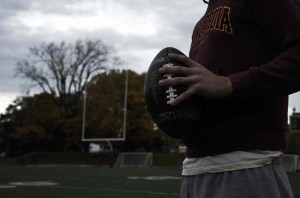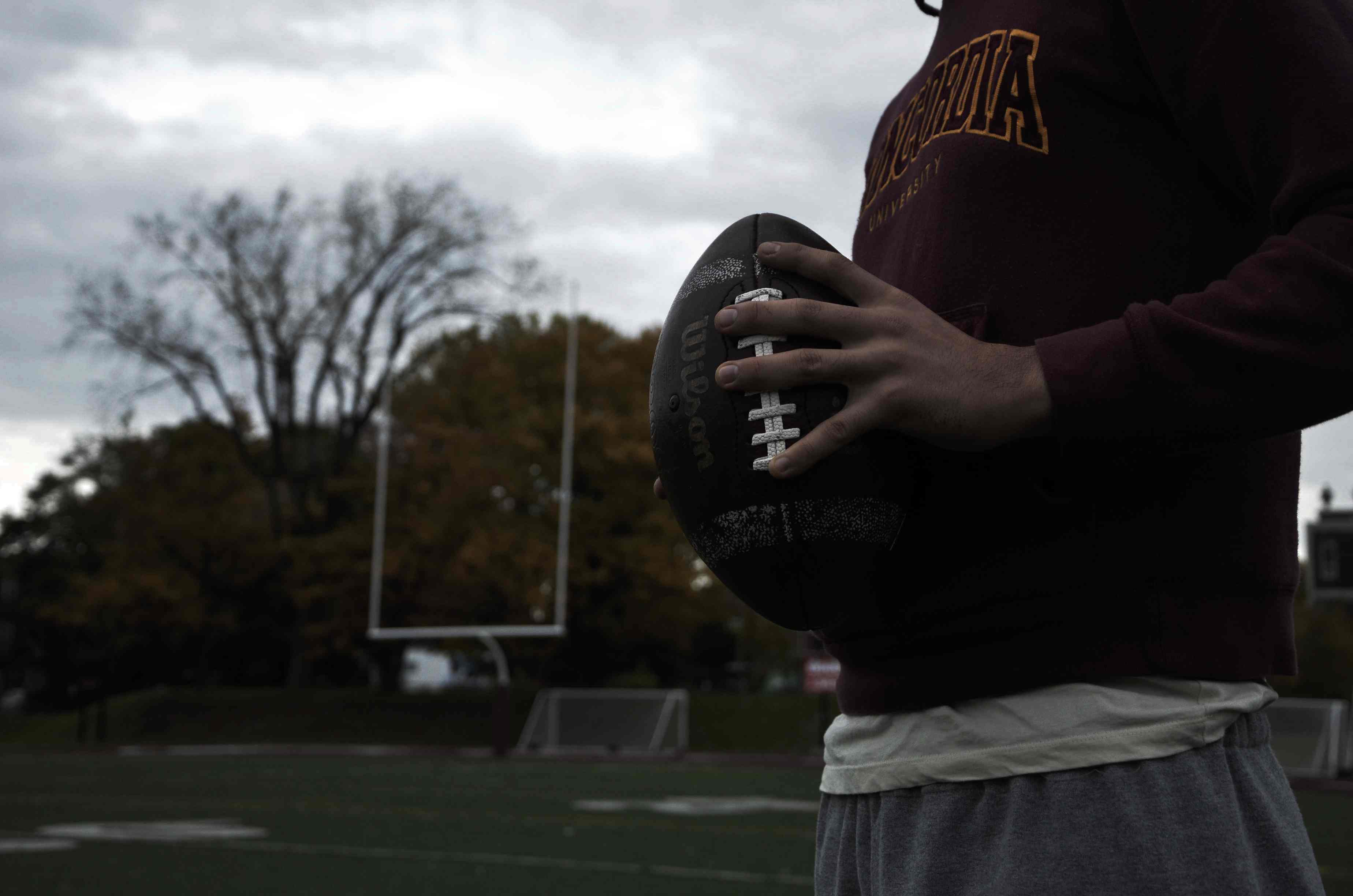
The Concordia Stingers football team was hit hard by the Réseau du Sport Étudiant du Québec and by the Canadian Interuniversity Sport a week ago, after self-disclosing the use of an ineligible player through the first four weeks of the 2012-13 season.
The RSEQ and the CIS are citing CIS eligibility Article 40.10.4.3.1.1, which limits the number of years a student athlete can participate in CIS competition to five years, as the reason for the player’s ineligibility.
Two players, who wish to remain anonymous, confirmed to The Concordian that the player in question is offensive lineman Daryl Rankin.
The Stingers were forced to forfeit their first two wins of the season, a 42-36 victory over Bishop’s University in the season-opener, as well as the 41-20 win over St. Francis Xavier in the third game of the season. The Stingers were left with a 0-6 record, but a thrilling 43-40 victory over cross-town rivals McGill on Saturday, has already eliminated the possibility of a winless season.
It appears the time Rankin spent playing in the Quebec Junior Football League with the Chateauguay Jr. Raiders
after CÉGEP may have knocked a year off of his CIS eligibility.
Katie Sheahan, Concordia’s Director of recreation and athletics, said Rankin approached the coaches himself with concerns over his ability to play on the team.
“[He] spoke with our coach about his athletic background before coming to Concordia, and wanted to check whether or not there was something in his background that would make him ineligible,” said Sheahan. “Because at the time that he started with the school five years ago, he had not understood that all of the years that you play tackle football could be counted toward eligibility. So, at the time when he signed up with Concordia, he inadvertently did not understand that it was required to acknowledge that.”
Sheahan said that every student registers themselves, which is supervised by the athletics department, but admitted that the form players are required to fill out may have not been as clear as possible.
“The form asks the person to disclose information about sporting leagues and any particular activity that might happen in another league,” said Sheahan. “It’s possible that a student might not realize the significance of what they did or did not include.”
Sheahan added that the department is working on upgrading the forms in order to avoid future problems of a similar nature.
“One of the things we’ve been looking at is if there’s a way we can put better prompts in our paperwork that would ask someone to reflect on something, even if they didn’t understand some of the administrative jargon that comes with every administration, so we’re looking at whether or not we can break down the questions we ask to make it more explicit.”
Concordia’s athletic department released this statement to the press last Tuesday regarding the sanction handed down by the RSEQ:
“We recently discovered that an administrative error led to an ineligible student athlete participating in our first five football games this season,” read the statement. “Although we are disappointed for the members of our football team who have worked so hard this season, we are fully supportive of the sanctions that have been applied by the CIS and RSEQ.”
Sheahan also pointed out that the phrase “administrative error” is only a “summary statement,” of sorts. “It is the phrase that we use to summarize, but it is not a question of someone having seen something and neglected to record it — it was something that was not there to be seen.”
John Bower, program director of university programs at the RSEQ, and Michel Bélanger, communications and media relations manager at the CIS, both had high praise for Sheahan and the athletics department for the way they handled the situation.
Bower revealed rumors began flying around one week before Concordia’s announcement. He said the school took full responsibility, self-disclosed the information without any issues, and were co-operative. Bower noted, while this doesn’t lead to a widespread search for ineligible players, the sanctions handed down by the league gets everyone’s attention, and teams make sure to review the statuses of their own players.
There is already evidence of this happening around the province, as the Sherbrooke Vert et Or men’s soccer team was forced to forfeit three regular season wins following the discovery of an ineligible player on their roster, earlier this month.
Bélanger noted that the issue will be put to rest by next year, as a new time-clock rule will come into effect, meaning athletes will have a certain amount of years to complete their five years of eligibility following their graduation from high school, depending on what part of the country, or part of the world, they are coming from.
Sheahan is not worried about the impact this might have on potential recruits, who may perceive this as another black mark on a football program that, as it is, is far from matching up with the elite teams of the province.
“If it was all about wins and losses, it would almost negate what the recruiting process is all about at the inter-university level, because athletics is one portion of that,” she said. “I think we stand for the integrity of the system of rules, and I think it would be wrong to assume that students and parents that are looking for programs across the country, wouldn’t support the fact that they know that there are ethical educators at the heart of their sports program.”
Sheahan said that the department would be implementing a new system which calls for anyone who has done any type of study beyond high school that is not a direct line from high school to university (or high school to CÉGEP and then to university, for Quebec athletes) to have their files reviewed and interviewed to try and catch any errors before it is too late.




